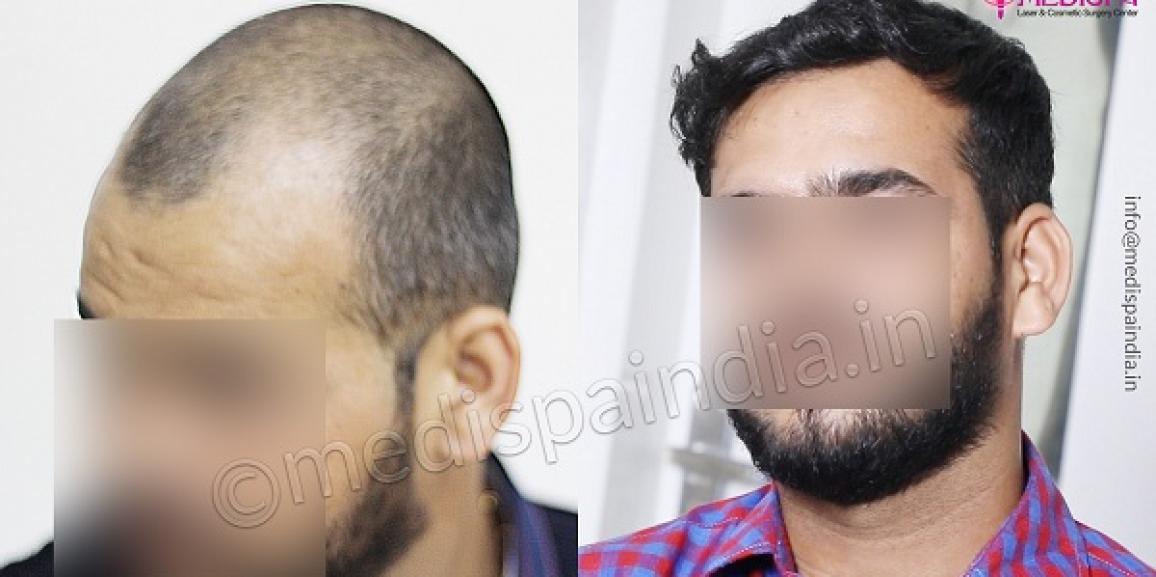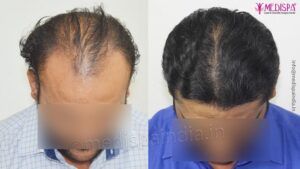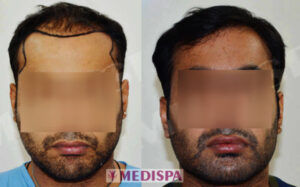
Due to rising aesthetic concerns, hair transplant surgery is currently one of the most often mentioned cosmetic surgical treatments. The primary worry has continued to be hair loss since it more significantly lowers the quality of social and professional life. Although genetics is mostly to blame for hair loss in the general population, there are other variables that can also result in hair loss. Wet combing and chemical straightening are among them, as well as the use of heated equipment, poor diet, oral contraceptives, drinking, smoking, and medication (anti-depressants, anti-anxiety, and anti-psychotics).
People now seek solutions to stop or slow down hair loss as a result of it. There are numerous blogs offering medications, herbal treatments, and more, but sadly, no remedy can stop hair loss like pattern baldness. The only assured method of recovering your hair is through hair transplantation or hair restoration.
It is common to worry if a hair transplant would last forever when considering one. To keep the transplanted hair, do we need to undergo hair transplantation every few years?
The good news is that a hair transplant carried out by skilled and knowledgeable doctors will undoubtedly last a lifetime.
Why get a hair transplant compared to other treatment options?
We all purchase several cosmetic goods when we have hair loss, including lotions, shampoos, and conditioners, but their efficacy has not yet been established.
Other short-term methods for hiding baldness include hair wigs, suction wigs, hair extensions, parting preferences, going completely bald, and shaving your head. Although they are taxing, these treatment options successfully cover the bald spot.
There are two treatments for hair loss: finasteride, an oral medicine, and minoxidil, a lotion that may be used topically and is sold over the counter. These drugs are designed to speed up the development of hair and slow down the course of hair loss. Although the outcomes are advantageous, their permanence is in doubt because they might recur if the medicine is stopped.
The best and only option for treating hair loss is a hair transplant, which is a very successful surgery and has numerous advantages over alternative short-term fixes, such as:
- Permanent results are provided through hair transplant surgery
- The hair transplant outcomes provide undetectable, natural results.
- This technique offers long-term benefits because it may be done in many sittings for patients of progressive hair loss.
- By giving you the most covering possible on your balding region, hair transplant might increase your confidence.
Hair transplant and its techniques
A minimally invasive surgical treatment known as a “hair transplant” entails carefully removing hair follicles from the donor region and transferring them to the recipient’s bald area. Based on the needed hair density and what is available in the desired chosen places, the donor area is chosen.
Graft harvesting operations are the most vital stage in hair transplant surgery that guarantees its success. FUT and FUE hair transplant procedures are the two fundamental methods used to execute the hair transplant.
How can lasting outcomes be ensured?
Patients have begun to doubt the procedure’s certainty after hearing both positive and bad reports of hair transplants from individuals, as the number of failure outcomes is also rising with the expanding popularity of hair transplant in India.
Here is a summary of a few factors that might bring about permanent hair transplant results that appear natural for you:
- Selecting the ideal surgeon: It is important to check the surgeon’s qualifications because training and experience are two key components of excellent outcomes. Choose a licensed and board-certified hair transplant surgeon whenever possible. You may simply browse the reviews and photo galleries of former patients, which will give you a sense of the surgeon’s level of experience. Additionally, as teamwork is essential to the success of hair transplants, you should evaluate the experience of the supporting staff.
- Method of treatment: Choosing the right approach based on the needs of the patients requires careful consideration and the application of knowledge in the real world. The approach selected depends on the patient’s age and gender, the degree of baldness, the number of grafts needed to cover the baldness, and the kind and amount of hair in the donor location.
Each procedure demands extreme dexterity and should only be used sparingly by skilled surgeons. The FUT technique is more complex and requires more experience, yet it has many more advantages over FUE. Although FUE hair transplantation is straightforward, it demands accuracy and is technique-sensitive since failure to do so might result in overharvesting of follicular grafts or higher hair follicle damage rate.
- Post-transplant care: In addition to the efforts of a qualified surgeon, the patient must work diligently. For outcomes to be permanent, post-transplant protocols should be rigorously followed. The post-transplant treatment is followed for no more than 10 days because this surgery is less invasive.
- Equipment utilized: Innovation and technology are employed to improve results in every discipline, including hair transplant surgery. It is essential to choose a clinic with cutting-edge equipment of the highest caliber and that performs each stage under strong magnification.
Medispa hair transplant clinic is one of the most reliable options for your hair transplant in India as we assure you to deliver the best possible permanent results. Our centre is equipped with revolutionary infrastructure with world class technology. Dr Suneet Soni believes in keen observation for enhancing every minute detail under high magnification in the desire of delivering excellent results for patient’s complete satisfaction. Dr Suneet Soni: a super specialized plastic surgeon has been acclaimed to be worldwide fame for his unparalleled surgical skills and artistic vision to design the hairline with 100% natural results. With us you can get the best treatment at affordable hair transplant cost in India.





